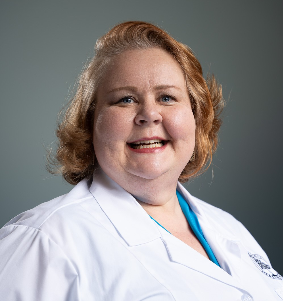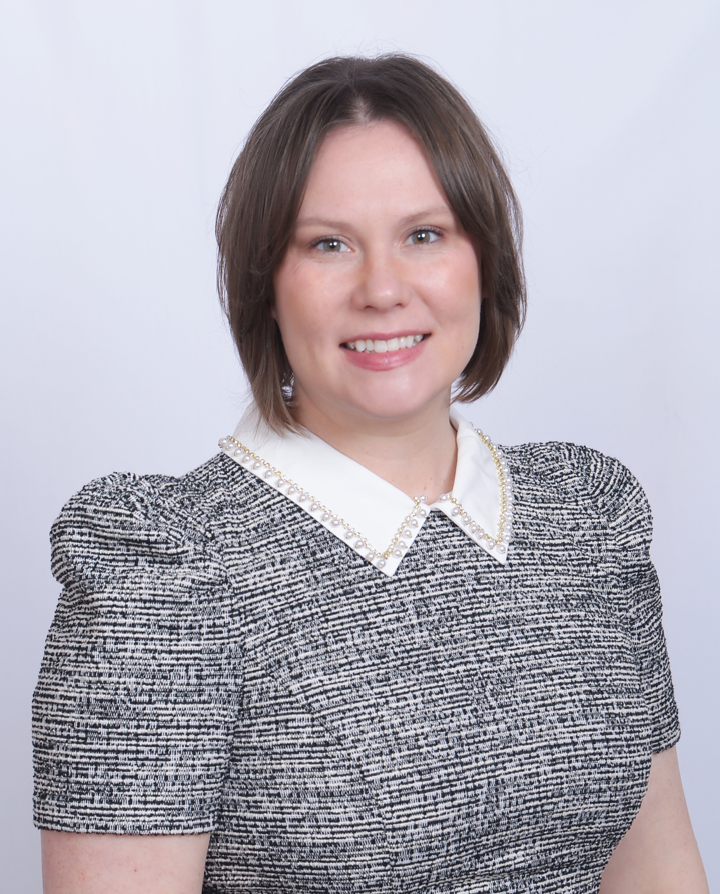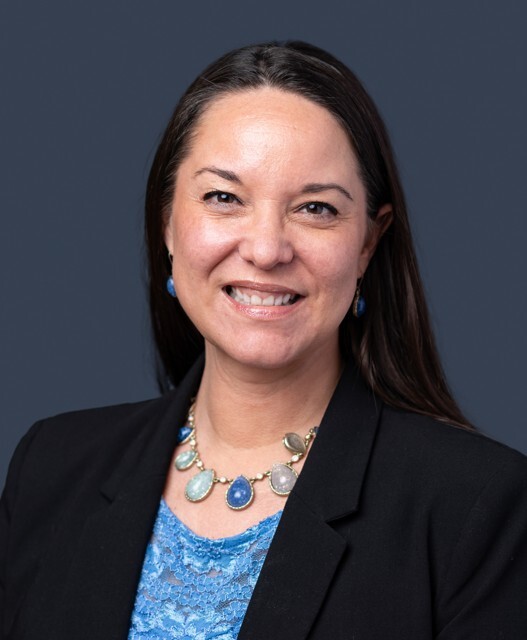
Catalog Advanced Search
-
Contains 1 Component(s) Includes a Live In-Person Event on 02/26/2026 at 8:30 AM (EST)
The Root Cause Analysis (RCA) course provides healthcare professionals with the knowledge and skills to systematically investigate and address the underlying causes of medical errors, adverse events, and process inefficiencies. This course covers proven RCA methodologies, including the use of tools like the Five Whys, Fishbone Diagrams, and Failure Mode and Effects Analysis (FMEA), to identify root causes and implement effective corrective actions. Through case studies and practical exercises, participants will learn how to enhance patient safety, improve clinical processes, and foster a culture of proactive problem-solving. By the end of the course, healthcare professionals will be equipped to lead RCA initiatives that drive meaningful and sustainable improvements in their organizations.
The Root Cause Analysis (RCA) course provides healthcare professionals with the knowledge and skills to systematically investigate and address the underlying causes of medical errors, adverse events, and process inefficiencies. This course covers proven RCA methodologies, including the use of tools like the Five Whys, Fishbone Diagrams, and Failure Mode and Effects Analysis (FMEA), to identify root causes and implement effective corrective actions. Through case studies and practical exercises, participants will learn how to enhance patient safety, improve clinical processes, and foster a culture of proactive problem-solving. By the end of the course, healthcare professionals will be equipped to lead RCA initiatives that drive meaningful and sustainable improvements in their organizations.

Debra Illig
Vice President of Clinical Effectiveness and Patient Safety
Adventist HealthCare
Dr. Debra Illig is the Vice President of Clinical Effectiveness and Patient Safety for Adventist HealthCare. Adventist HealthCare, based in Gaithersburg, Maryland. Components of the health system include acute care, behavioral health, community integrated networks, home health, and rehab.
Throughout her career as a nurse executive, Dr. Illig has assumed leadership roles across the healthcare continuum. Her passion is hospice and palliative care.
Dr. Illig earned her Doctorate in Health Administration from National University. She also earned her MBA from Marymount University in Arlington, VA, and her BSN from Indiana University of PA. She is a black belt in lean/six sigma with multiple certifications in healthcare quality, patient safety, and legal nurse consulting.
As an equestrian, Dr. Illig resides in Maryland’s “horse country” with her husband and a menagerie of four-legged family members.
-
Register
- Non-member - $499
- Member - $99
- More Information
-
Register
-
Contains 2 Component(s) Includes a Live Web Event on 12/17/2025 at 12:00 PM (EST)
The Centers for Medicare & Medicaid Services (CMS) has introduced a structural measure that directly ties hospital quality reporting to an organization’s commitment to patient safety infrastructure. This new requirement goes beyond individual events, and calls for formalized leadership structures, proactive safety strategies, and robust learning systems that reflect a mature safety culture. In this practical, actionable webinar, a regulatory expert will walk participants through the CMS Patient Safety Structural Measure specifications, unpack common points of confusion, and provide step-by-step guidance to help your organization demonstrate compliance. You’ll leave with a clearer understanding of what CMS is asking for and the tools to take measurable steps toward meeting it. Whether you’re preparing your first report or refining an existing program, this session will help you align your internal efforts with national expectations.
The Centers for Medicare & Medicaid Services (CMS) has introduced a structural measure that directly ties hospital quality reporting to an organization’s commitment to patient safety infrastructure. This new requirement goes beyond individual events, and calls for formalized leadership structures, proactive safety strategies, and robust learning systems that reflect a mature safety culture.
In this practical, actionable webinar, a regulatory expert will walk participants through the CMS Patient Safety Structural Measure specifications, unpack common points of confusion, and provide step-by-step guidance to help your organization demonstrate compliance.
You’ll leave with a clearer understanding of what CMS is asking for and the tools to take measurable steps toward meeting it. Whether you’re preparing your first report or refining an existing program, this session will help you align your internal efforts with national expectations.-
Register
- Member - Free!
- More Information
-
Register
-
Contains 2 Component(s) Includes a Live In-Person Event on 12/09/2025 at 9:00 AM (EST)
This in-person interactive training equips healthcare professionals with the knowledge and skills to apply Failure Modes and Effects Analysis (FMEA) to proactively identify and mitigate risks in clinical processes. Participants will explore the history, purpose, and proven applications of FMEA, including its role in driving patient safety and meeting compliance requirements. By the end of the session, participants will be ready to integrate FMEA into their organization’s safety and quality programs to maximize patient care outcomes.
This in-person interactive training equips healthcare professionals with the knowledge and skills to apply Failure Modes and Effects Analysis (FMEA) to proactively identify and mitigate risks in clinical processes. Participants will explore the history, purpose, and proven applications of FMEA, including its role in driving patient safety and meeting compliance requirements.
Through best practice frameworks, real-world case studies, and hands-on exercises, learners will:
-
Understand the key drivers for using FMEA in healthcare.
-
Identify the factors that contribute to a successful FMEA.
-
Apply practical steps to prioritize risks and plan effective interventions.
-
Strengthen communication and hand-off strategies to ensure process improvements are sustained.
By the end of the session, participants will be ready to integrate FMEA into their organization’s safety and quality programs to maximize patient care outcomes.
-
Register
- Non-member - $499
- Member - $99
- More Information
-
-
Contains 2 Component(s) Includes a Live Web Event on 12/04/2025 at 12:00 PM (EST)
In this session, two hospitals share infection prevention strategies that addressed persistent, high-risk challenges through interdisciplinary teamwork, technology, and evidence-based practices. Sinai Hospital will present their response to an outbreak of Candida auris, a multidrug-resistant fungal pathogen with significant implications in ventilator-capable and high-acuity units. Their team implemented an intensive infection control approach combining advanced disinfection technologies, enhanced isolation protocols, and real-time collaboration across departments. The initiative resulted in a 67% reduction in patient colonization post-admission and serves as a model for managing emerging infectious threats in vulnerable patient populations. The second presentation from Luminis Health focuses on reducing CLABSI rates despite already successful efforts to reduce central line days. Through detailed case reviews, the team identified central line maintenance as a key opportunity for improvement. They implemented a comprehensive maintenance bundle and introduced the “Illuminator” role—unit-based champions who serve as clinical experts and coaches. Together, these efforts led to measurable improvements in line care practices and outcomes across the organization.
In this session, two hospitals share infection prevention strategies that addressed persistent, high-risk challenges through interdisciplinary teamwork, technology, and evidence-based practices.
Sinai Hospital will present their response to an outbreak of Candida auris, a multidrug-resistant fungal pathogen with significant implications in ventilator-capable and high-acuity units. Their team implemented an intensive infection control approach combining advanced disinfection technologies, enhanced isolation protocols, and real-time collaboration across departments. The initiative resulted in a 67% reduction in patient colonization post-admission and serves as a model for managing emerging infectious threats in vulnerable patient populations.
The second presentation from Luminis Health focuses on reducing CLABSI rates despite already successful efforts to reduce central line days. Through detailed case reviews, the team identified central line maintenance as a key opportunity for improvement. They implemented a comprehensive maintenance bundle and introduced the “Illuminator” role—unit-based champions who serve as clinical experts and coaches. Together, these efforts led to measurable improvements in line care practices and outcomes across the organization.

Uzoamaka Obiekwe
Manager, Infection Prevention and Control
LifeBridge Health Sinai Hospital

Jasmine Arrington
Infection Preventionist
LifeBridge Health Sinai Hospital

Kari Mimnaugh DNP, RN, CCRN
Luminis Health Anne Arundel Medical Center
-
Register
- Non-member - $49
- Member - Free!
- More Information
-
Register
-
Contains 2 Component(s) Includes a Live Web Event on 11/20/2025 at 12:00 PM (EST)
In response to a post-pandemic surge in advanced pressure injuries, MedStar Franklin Square Medical Center launched a comprehensive, multidisciplinary initiative to reverse this trend. Through focused leadership engagement and frontline collaboration, the hospital identified systemic barriers—ranging from staging inconsistencies and poor documentation to siloed communication and lack of ownership. A robust action plan was developed and executed, targeting every layer of care delivery, including nursing, wound care, providers, IT, and quality teams. Key interventions included real-time photo documentation, integration of wound care into daily rounds, improved dashboard visibility, provider education, and leadership accountability for hospital-acquired pressure injuries. Cultural shifts were reinforced with creative education strategies like “Wound Wednesdays” and “Tushy Tuesdays.” Within two years, the hospital achieved a 67% reduction in PSI 03 rates, from 4.92 to 1.63 per 1,000 discharges. This webinar shares the strategies, tools, and leadership approaches that drove sustainable improvement and offers insights for other hospitals working to reduce pressure injuries and improve safety outcomes.
In response to a post-pandemic surge in advanced pressure injuries, MedStar Franklin Square Medical Center launched a comprehensive, multidisciplinary initiative to reverse this trend. Through focused leadership engagement and frontline collaboration, the hospital identified systemic barriers—ranging from staging inconsistencies and poor documentation to siloed communication and lack of ownership. A robust action plan was developed and executed, targeting every layer of care delivery, including nursing, wound care, providers, IT, and quality teams.
Key interventions included real-time photo documentation, integration of wound care into daily rounds, improved dashboard visibility, provider education, and leadership accountability for hospital-acquired pressure injuries. Cultural shifts were reinforced with creative education strategies like “Wound Wednesdays” and “Tushy Tuesdays.” Within two years, the hospital achieved a 67% reduction in PSI 03 rates, from 4.92 to 1.63 per 1,000 discharges. This webinar shares the strategies, tools, and leadership approaches that drove sustainable improvement and offers insights for other hospitals working to reduce pressure injuries and improve safety outcomes.

Jennifer Barnett, DMSc, PA-C, DFAAPA, CPHQ, SFHM, CAQ-HM
Hospital Medicine and Quality/Safety Teams
Medstar Franklin Square Medical Center & Medstar Harbor Hospital
Dr. Jennifer Barnett is a seasoned hospital medicine Physician Assistant with over 20 years of experience in clinical care, healthcare leadership, and quality improvement. She is an Associate Professor at Georgetown University School of Medicine, and Adjunct at the University of Maryland, Baltimore graduate school. She serves as a hospitalist physician assistant at MedStar Franklin Square Medical Center, where she leads multidisciplinary teams focused on improving patient outcomes, workflow efficiency, and provider well-being.
Jennifer holds a Doctor of Medical Science (DMSc) from A.T. Still University and is a board-certified Physician Assistant with a Certificate of Added Qualification in Hospital Medicine. She is also a Distinguished Fellow of the AAPA, Certified Professional in Healthcare Quality (CPHQ), and a Senior Fellow in Hospital Medicine (SFHM).
A passionate advocate and educator, she regularly speaks at state and national conferences on topics including trauma-informed care, patient safety, professional well-being, and “pebble in your shoe” workflow challenges in hospital practice.
Jennifer is also an Associate Professor in Doctor of Medical Science programs, where she teaches quality improvement, advocacy, and leadership. She is committed to mentoring the next generation and fostering collaboration between clinicians, educators, and system leaders.
Christina Encarnacion BSN, RN, CWON
Christina Encarnacion BSN, RN, CWON
Medstar Franklin Square Medical Center
Christina holds a Bachelor’s degree in Biology and Nursing, bringing a robust foundation in both scientific research and clinical practice. With over ten years of nursing experience, she has excelled in various hospital settings, developing a comprehensive understanding of patient care.
Currently serving as a Certified Wound Ostomy Nurse in the acute care environment, she is dedicated to enhancing patient outcomes through specialized wound and ostomy care. For the last two years, she was honored with Baltimore Magazine Nurse Excellence Award, recognizing her commitment to the nursing profession and excellence in patient care.
In her current role, one of her most impactful initiatives is reducing pressure injuries by implementing effective prevention strategies within the hospital. Her passion for improving patient care and commitment to excellence within a multidisciplinary care team, continues to drive significant advancements in nursing practice.
-
Register
- Non-member - $49
- Member - Free!
- More Information
-
Register
-
Contains 2 Component(s) Includes Multiple Live Events. The next is on 11/19/2025 at 9:00 AM (EST)
The 1.5-day TeamSTEPPS Master Trainer Course equips healthcare professionals with the knowledge and skills to lead, implement, and sustain TeamSTEPPS principles within their organizations. This interactive training provides an in-depth understanding of evidence-based teamwork and communication strategies designed to enhance patient safety and improve team performance. Participants will learn how to effectively train others, facilitate team-based interventions, and drive culture change through practical exercises, case studies, and hands-on application of TeamSTEPPS tools. Upon completion, attendees will be prepared to serve as Master Trainers, capable of coaching teams, mitigating communication failures, and fostering a culture of collaboration and high reliability in healthcare settings.
The 1.5-day TeamSTEPPS Master Trainer Course equips healthcare professionals with the knowledge and skills to lead, implement, and sustain TeamSTEPPS principles within their organizations. This interactive training provides an in-depth understanding of evidence-based teamwork and communication strategies designed to enhance patient safety and improve team performance. Participants will learn how to effectively train others, facilitate team-based interventions, and drive culture change through practical exercises, case studies, and hands-on application of TeamSTEPPS tools. Upon completion, attendees will be prepared to serve as Master Trainers, capable of coaching teams, mitigating communication failures, and fostering a culture of collaboration and high reliability in healthcare settings.
Registration Requirements
A full team of three individuals is required; partial teams will not be able to register. Registration requires the following information for each of your three or more team members: Name, Organization Name, Address, Phone, Email, Credentials, and position within the organization.
Pre-Work
The pre-work is designed to help you prepare for the Master Training course. Furthermore, responses from your team’s pre-work will provide the faculty with key insight as to the needs of the class. Completing the pre-work will not only help you garner more from the training but will also help the faculty leverage their resources and expertise to tailor the curriculum to your needs. It is appropriate for your team to work together on this assignment and have one person submit it on the team’s behalf. Instructions on how to upload your pre-work will be forthcoming.
Upon successful completion of the TeamSTEPPS® Master Training course, attendees will receive a Certificate of Completion

Adriane Burgess
Senior Director for Innovation in Quality and Patient Safety
Maryland Patient Safety Center
Dr. Adriane Burgess is a nationally recognized leader in maternal-child health and patient safety with over 25 years of nursing experience across diverse perinatal care settings. She holds multiple certifications in healthcare quality, education, and obstetric care, reflecting her deep expertise and commitment to excellence.
Currently serving as the Senior Director of Innovation in Patient Safety and Quality at the Maryland Patient Safety Center, Dr. Burgess leads interdisciplinary initiatives aimed at advancing safety, equity, and quality in perinatal care. She has authored numerous peer-reviewed articles on maternal-child health clinical quality and is a sought-after speaker at both local and national conferences.
Her leadership has driven award-winning quality improvement projects recognized by Safe Healthcare for Every Woman, AWHONN, and the U.S. Department of Health and Human Services. In 2023, Dr. Burgess was honored with AWHONN’s Award for Excellence in Leadership and inducted as a Fellow of the Association of Women’s Health, Obstetric and Neonatal Nurses (FAWHONN).
Dr. Burgess currently serves on the Board of Directors for AWHONN, the Medical Advisory Board for Count the Kicks, and the Editorial Advisory Board for MCN: The American Journal of Maternal Child Nursing. She remains deeply committed to improving outcomes for birthing people and their babies through innovation, collaboration, and evidence-based practice.

Jacqueline Hartford
Program Manager
Maryland Patient Safety Center
Jacqueline Hartford, PharmD, BCPS, BCCCP, CPPS, is a patient safety leader at the Maryland Patient Safety Center, where she supports hospitals statewide in advancing medication safety and systems improvement. She brings extensive experience in high-acuity clinical settings and a strong commitment to collaborative learning and cross-institutional engagement.
Prior to joining MPSC, Jacqueline served as the Medication Safety Officer at LifeBridge Health and practiced for many years as an emergency department pharmacist. She earned her Doctor of Pharmacy from Midwestern University and completed post-graduate residency training in critical care. Board certified in pharmacotherapy and critical care pharmacy, and a Certified Professional in Patient Safety, Jacqueline is passionate about improving medication use processes and mentoring healthcare teams to enhance safe, effective care.
-
Register
- Non-member - $899
- Member - $399
- More Information
-
Register
-
Contains 1 Component(s) Includes a Live Web Event on 11/13/2025 at 12:00 PM (EST)
Culture, Collaboration, and Change: Building Safer Medication Systems Together
Join us for this dynamic half-day virtual conference designed to engage the full spectrum of professionals committed to safer medication use. Through real-world examples drawn from inpatient acute care—and applicable across all care settings—you’ll explore how system design, safety culture, and cross-sector collaboration can reduce harm and build more resilient medication systems.
Whether you’re a pharmacist, nurse, physician, quality leader, or industry partner—vendor, manufacturer, or technology innovator—you play a critical role. Together, we’ll challenge conventional silos, share lessons learned, and spark conversations that lead to meaningful change.
-
Register
- Non-member - $299
- Member - $69
- More Information
-
Register
-
Contains 2 Component(s) Includes a Live Web Event on 11/06/2025 at 12:00 PM (EST)
Hospital-acquired pressure injuries (HAPIs) are a costly and preventable harm, often rooted in delayed identification and intervention. At MedStar Southern Maryland Hospital Center, a multi-year, multi-phase quality improvement project tackled this challenge head-on—beginning in the Emergency Department, where prolonged patient boarding creates heightened risk. This webinar will highlight the development and implementation of an emergency nursing-specific pressure injury screening tool, created in collaboration with frontline nurses and integrated into the electronic health record. With over 2,500 patients assessed and 643 virtual wound care consults completed during the pilot phase, the project led to a 62% reduction in hospital-acquired pressure injuries. Presenters will walk through each phase of the initiative—from early screening and evidence-based prevention bundles to the innovative use of a dedicated wound care patient care technician and virtual wound nurse consults. Attendees will gain insight into how structured workflows, interdisciplinary collaboration, and real-time interventions can drastically improve patient outcomes, reduce costs, and ensure equity in pressure injury prevention. Lessons learned from this project are highly adaptable for other emergency departments and care areas seeking to reduce harm, improve documentation, and embed a health equity lens into clinical practice.
Hospital-acquired pressure injuries (HAPIs) are a costly and preventable harm, often rooted in delayed identification and intervention. At MedStar Southern Maryland Hospital Center, a multi-year, multi-phase quality improvement project tackled this challenge head-on—beginning in the Emergency Department, where prolonged patient boarding creates heightened risk. This webinar will highlight the development and implementation of an emergency nursing-specific pressure injury screening tool, created in collaboration with frontline nurses and integrated into the electronic health record. With over 2,500 patients assessed and 643 virtual wound care consults completed during the pilot phase, the project led to a 62% reduction in hospital-acquired pressure injuries.
Presenters will walk through each phase of the initiative—from early screening and evidence-based prevention bundles to the innovative use of a dedicated wound care patient care technician and virtual wound nurse consults. Attendees will gain insight into how structured workflows, interdisciplinary collaboration, and real-time interventions can drastically improve patient outcomes, reduce costs, and ensure equity in pressure injury prevention. Lessons learned from this project are highly adaptable for other emergency departments and care areas seeking to reduce harm, improve documentation, and embed a health equity lens into clinical practice.

Laura Ogle, DNP, CENP, CNE, CEN
Director of Nursing Professional Development
MedStar Southern Maryland Hospital Center

Jennifer F. Bierbaum, DNP, APRN-CNS, AGCNS-BC, CENP, GERO-BC
Director of Nursing Practice & Innovation, Magnet and Pathway Program Director
MedStar Southern Maryland Hospital Center
Jennifer F. Bierbaum, DNP, APRN-CNS, AGCNS-BC, CENP, CPHQ, GERO-BC is the MedStar Southern Maryland Hospital Center Director of Nursing Practice and Innovation, Magnet and Pathway to Excellence Program Director. She also serves as the MedStar Health Nurses Improving Care for HealthSystem Elders (NICHE) program coordinator for the system. Dr. Bierbaum graduated from Southeast Community College in Lincoln, Nebraska with an Associate Degree in Nursing and later attended the University of Nebraska Medical Center School of Nursing where she earned her Bachelor of Science in Nursing, Master of Science in Nursing and APRN certification as a CNS and Doctor of Nursing Practice degrees. In addition, Dr. Bierbaum attended the Wharton Nursing Leaders Program at the University of Pennsylvania.
-
Register
- Non-member - $49
- Member - Free!
- More Information
-
Register
-
Contains 1 Component(s) Includes a Live In-Person Event on 10/28/2025 at 9:00 AM (EDT)
The three-day Lean Six Sigma Green Belt course equips healthcare professionals with the essential tools and methodologies to improve patient care, reduce inefficiencies, and enhance operational performance. This course provides a comprehensive understanding of Lean and Six Sigma principles, focusing on data-driven decision making, process optimization, and waste reduction within healthcare settings. Participants will learn to identify areas for improvement, implement sustainable solutions, and lead quality improvement projects that drive measurable results. Through real-world case studies and hands-on exercises, healthcare professionals will gain the skills needed to enhance patient outcomes, streamline workflows, and foster a culture of continuous improvement in their organizations.
The three-day Lean Six Sigma Green Belt course equips healthcare professionals with the essential tools and methodologies to improve patient care, reduce inefficiencies, and enhance operational performance. This course provides a comprehensive understanding of Lean and Six Sigma principles, focusing on data-driven decision making, process optimization, and waste reduction within healthcare settings. Participants will learn to identify areas for improvement, implement sustainable solutions, and lead quality improvement projects that drive measurable results. Through real-world case studies and hands-on exercises, healthcare professionals will gain the skills needed to enhance patient outcomes, streamline workflows, and foster a culture of continuous improvement in their organizations.

Farrukh Kidwai, PhD., CLSSMBB
Instructor, Lean Six Sigma GB & BB Certification | Performance Improvement, Transformation & Integration
KIDWAI & Associates, LLC
Dr. Kidwai is an Industrial Engineer and a Lean Six Sigma Master Black Belt. He has 30 years of experience working with diverse organizations to achieve Performance Improvement and Operational Excellence. He has worked in the United States, Europe, the Middle East and North Africa. Farrukh has published and presented extensively on Lean Six Sigma tools and techniques and has trained and certified hundreds.
-
Register
- Non-member - $1,599
- Member - $899
- More Information
-
Register
-
Contains 2 Component(s) Includes a Live Web Event on 10/16/2025 at 12:00 PM (EDT)
With over 100,000 patients in its care carrying a diabetes diagnosis, MedStar Health faced a growing challenge: how to deliver high-quality, multidisciplinary diabetes care amid a national shortage of endocrinologists, long wait times for specialty care, and rising healthcare costs. The MedStar Diabetes Institute had a clinically effective, research-backed model that significantly reduced A1C levels but faced operational inefficiencies and lacked financial sustainability. Recognizing the urgent need to transform care access, affordability, and delivery, the team redesigned the program to be scalable and sustainable while maintaining its strong clinical outcomes. This webinar will explore how MedStar leveraged systemwide collaboration, telehealth, optimized workflows, and payer partnerships to expand access to diabetes care and improve outcomes. Presenters will share the steps taken to reengineer care delivery using a patient-centered, data-driven approach that supported care across the continuum—while achieving cost neutrality within one year. Participants will learn how a multifaceted, team-based model can bridge specialty care gaps, support top-of-license practice, and build a business case for long-term program success in high-demand, resource-constrained environments.
With over 100,000 patients in its care carrying a diabetes diagnosis, MedStar Health faced a growing challenge: how to deliver high-quality, multidisciplinary diabetes care amid a national shortage of endocrinologists, long wait times for specialty care, and rising healthcare costs. The MedStar Diabetes Institute had a clinically effective, research-backed model that significantly reduced A1C levels but faced operational inefficiencies and lacked financial sustainability. Recognizing the urgent need to transform care access, affordability, and delivery, the team redesigned the program to be scalable and sustainable while maintaining its strong clinical outcomes.
This webinar will explore how MedStar leveraged systemwide collaboration, telehealth, optimized workflows, and payer partnerships to expand access to diabetes care and improve outcomes. Presenters will share the steps taken to reengineer care delivery using a patient-centered, data-driven approach that supported care across the continuum—while achieving cost neutrality within one year. Participants will learn how a multifaceted, team-based model can bridge specialty care gaps, support top-of-license practice, and build a business case for long-term program success in high-demand, resource-constrained environments.

LIndsay O'Neil MHCI, BSN, RN, CCM
Director, Clinical Care Transformation
MedStar Health

Gretchen Youssef
Program Director, MedStar Diabetes Institute
MedStar Health
-
Register
- Non-member - $49
- Member - Free!
- More Information
-
Register